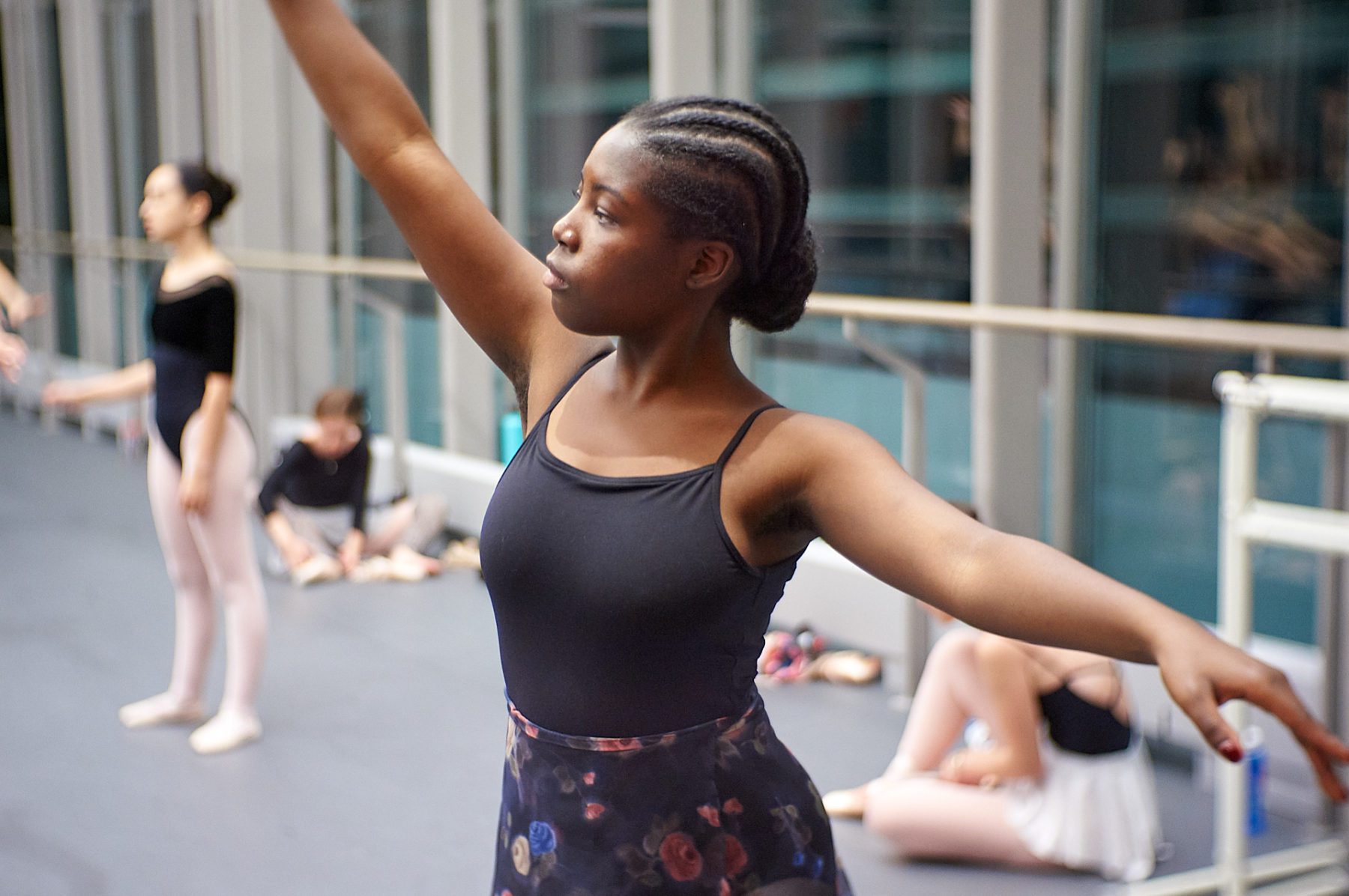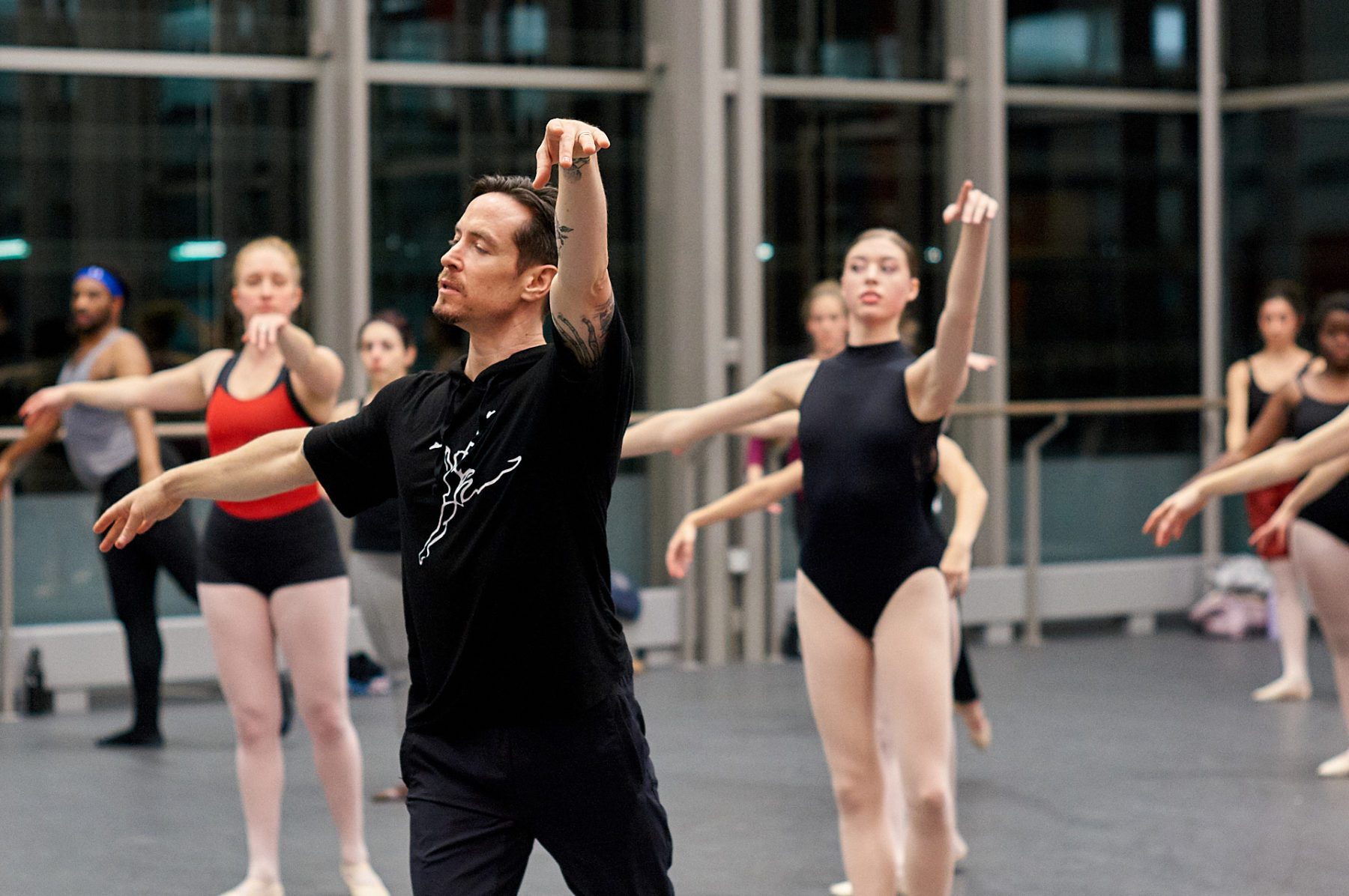LIVE & ESSENTIAL: Q&A, Stefanie Batten Bland
March 31, 2022
In 2019 and 2020, dancer-choreographer Stefanie Batten Bland, founder of Company SBB, was in residence in the Rubenstein Arts Center together with dancers and instructors from the American Ballet Theatre Studio Company. These residencies were the creative core of Duke University’s three-year partnership with ABT. Embarqued: Stories of Soil represents the outgrowth and evolution of themes developed during that residency period.
Before the world premiere of Embarqued: Stories of Soil — which blends dance, theater, and installation art — we spoke with Batten Bland about the ways in which collaboration and COVID-19 influenced her process.
How did your time in residence at Duke influence the development of Embarqued?
Place has everything to do with why things pop into one’s mind. The South is ripe with territorial and monumental memory tributes. When I was first in Durham, working with a ballet company that is called the Company of America, it made sense to begin investigating: How do we claim our Americana inside of this vernacular that is often attributed to only European influence?
To me, classical dance is embedded in European as well as Africanist expression, and this planted the seeds for what would later develop into two separate works developed for ABT. MonuMents: Finding the me inside the monumental premiered at the Five Moons Festival in August 2021 and celebrated Native American ballerinas. In Embarqued, we explore how our Americana is — and has always been — deeply connected with Africana.
I am deeply honored that there are partners like Duke, where support and exploration are long-term relationships. As it is time that allows the artist to mature, allows ideas to mature, allows work to ripen.

In early May, you shared your ideas with us on redefining success in the performing arts during the pandemic, writing “this experience will oblige us to honor that the small and the medium have impact and are successful” and that “what we will make on the other side will remind us that we must see the world differently, see and hear one another differently.” As we continue to adapt to life with COVID-19, how is your perspective on your work and your field evolving?
I am convinced that size matters. I am also movement director and casting director for Emursive Productions, producers of large shows that have suffered their share of postponement. Audiences as well as performers house and hold trauma of proximity. With US borders opening only as of yesterday, we will begin (I hope) to regain audience confidence with spatial safety. That safety is still tied to: How am I facing? Is it toward a stage? Is it moving around freely in space with other people and variables that I cannot control? These are the real questions I see in my large commercial work.
“The desire to connect, make connection safely with others, is seen and felt, because it is tangible and real.”
In my work, medium scale, I am not seeing this. People seem to feel comfortable with the realm of 40–400 seats, be it in pod or free-form seating. The desire to connect, make connection safely with others, is seen and felt, because it is tangible and real. Small- and medium-scale work is directly impacting communities as well as audiences in different models that reflect our desire for performance and the rituals of theatre-ship. Our performing art form is one that is socially and economically important in terms of making good people, good communities, and good countries.
I feel lucky that our work has always thrived in live and cinematic spaces. Meaning that there are many ways one can be in conversation with us. I love this about our work.

Since you began developing Embarqued in 2019, the topic of monuments and memorials has become even more popular, more contested. (One of the most significant photographs of 2020 is that of George Floyd projected onto the — now partially removed — Robert E. Lee Memorial in Richmond, Virginia.) How has your work responded to all the turmoil of the last year and a half?
Turmoil has been ongoing since the creation of the United States. Sustaining fear within a created caste system is not new to the last year and a half.
“My work hasn’t changed. I think the world is simply starting to catch up.”
What I see is a reckoning. Social platforms no longer enable the hiding of systemic behaviors. This is the moment and movement of our times, one that is situated in people demanding equality. True equality comes from doing the hard work of examining past and present behaviors. My work hasn’t changed. I think the world is simply starting to catch up.
Is there anything else you wish to share with our audience before returning to Durham to premiere Embarqued?
It will be a pleasure to come back and to integrate into the town and people again. Each residency, we meet so many new people and learn about ourselves and others.


Duke Performances presents Company SBB // Stefanie Batten Bland Embarqued: Stories of Soil on Friday, April 15, and Saturday, April 16 as part of its Live & Essential Spring ’22 season. Learn more and buy tickets now.
